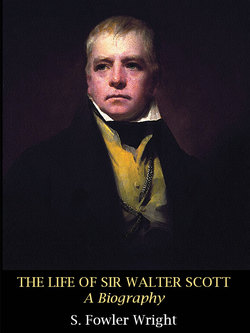Читать книгу The Life of Sir Walter Scott: A Biography - S. Fowler Wright - Страница 18
На сайте Литреса книга снята с продажи.
ОглавлениеCHAPTER XIV.
Looking back, we observe that the horrors of the French revolution did not extend to this island. We observe England as the guide and comforter of all who opposed, from whatever motive, the effort which the French Directory made to impose its political doctrines upon the rest of Europe. So, in retrospect, the fact stands. But to those who lived through the years of strife, the issue was not so clear. The civil difference was acute, bitter, and often violent. The revolutionary element in Edinburgh was so strong that there was at one time a plot to seize the castle, and defy the government. To a superficial view it might not have seemed surprising if the young lawyer, hungry for adventurous living, full of anti-Hanoverian sympathies, might have been drawn into participation in such disorders. But his reaction was different.
In the theatre, treason had found expression until it was louder than loyalty. An actor’s phrase which could be misconstrued into a seditious meaning would bring a roar of applause. Such sentiments might have more weight than any artistic merit in deciding between the success or failure of the play. The first bars of the National Anthem would be the signal for an outburst of cat-calls, hisses and howls. An Irish element, led by some medical students of that nationality, was blamed primarily for this rowdyism. They came, shillelahs in hand, overawing the quieter and more loyal elements of the audience.
There was a night, after a number of minor disturbances, when a young man rose up in the stalls and announced that he and his friends were determined not merely that the National Anthem should be played in silence, but that it should be sung by the audience. Anyone of a different mind had better leave. Should he interrupt, he would be thrown out. A howl of derision answered from the pit. It flourished defiant sticks. But the warning was no idle threat. There were ready clubs among the group of youthful barristers and attorneys in the stalls from which the challenge came. Conflict roared and did not cease till the last disloyalist had fled or been ejected from the theatre doors. Law and medicine had fought, and the law triumphed. They sang the National Anthem to their own satisfaction.
Proceedings followed in the Magistrates’ Court. With some lack of humour, the defeated party appealed to the law to which it had professed its defiance. One of the defendants was Walter Scott. He was accused of having led the attack. Three complainants showed broken heads, and identified him as the one whose cudgel had knocked them out. With four others, he was bound over to keep the peace, and ordered to find bail for his good behaviour in future. His opponents got little satisfaction from that. There were sureties to be had in plenty. He could have had half the town.
It was at this time—as early as 1794—though he was unable to effect his purpose till a later date, that he conceived the idea of the formation of an Edinburgh regiment of volunteer horse, which his lameness would not prevent him from joining. Drilling was becoming general over the country. The fear of invasion grew. The regular army was required for foreign service. Loyal citizens must learn to defend themselves. Before breakfast, in the summer days, his brother Tom drilled as a grenadier. But even the volunteer army had no use for Walter Scott, though Nelson’s physical weakness had not kept him out of the navy. Today, we know better. We should have rejected both.
